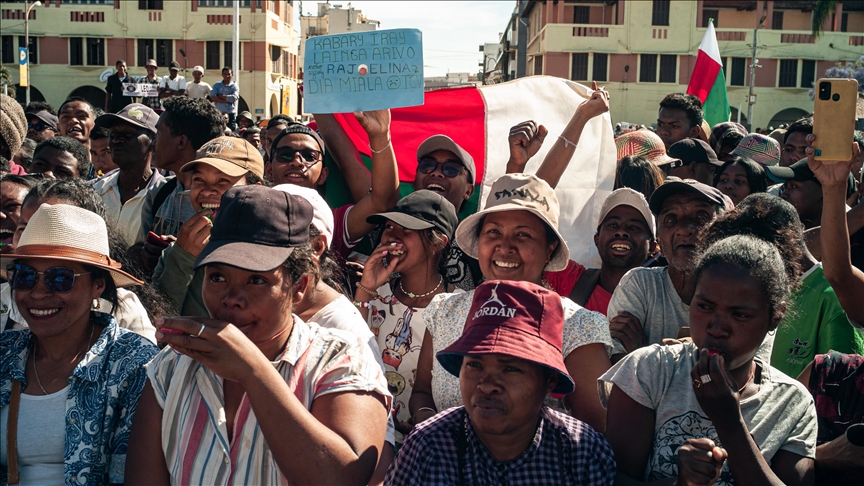Madagascar in government transition as military takes oath as president
Col. Micheal Randrianirina says occasion ‘historic turning point, new chapter'

LUSAKA, Zambia
Madagascar's military leader Col. Michael Randrianirina was sworn in as president Friday, pledging to defend and strengthen national unity and human rights after weeks of anti-government protests against Andry Rajoelina, who was ousted.
"Today marks a historic turning point for our country, we joyfully open a new chapter in the life of our nation," Randrianirina said in an oath before the High Constitutional Court at a ceremony attended by foreign dignitaries from Russia, France, the United States and the EU.
A large crowd gathered outside the court in Antananarivo, the capital, including those who spearheaded the Gen-Z protests that forced Rajoelina to flee the country one day before he was impeached.
After a tumultuous month, the Indian Ocean island nation enters a new transition period with Randrianirina having to deal with disapproval of his rise to power from the UN, the African Union and the Southern African Development Community (SADC).
Randrianirina, 48, an ex-commander of the elite Army Personnel Administration Center (CAPSAT) military unit, said his administration will draft a new Constitution "and agree to new electoral laws for the organization of elections and referendums.
"Our mission is to thoroughly reform the country's administrative, socioeconomic and political systems of governance. We are committed to breaking with the past," he said, while thanking the youth for spearheading the protests that forced his predecessor out of office.
Late Thursday, the SADC Organ Troika extraordinary summit, attended by leaders from Malawi, Tanzania and Eswatini, announced the deployment of a fact-finding delegation to Madagascar by Oct. 22 to report its findings to Troika chairperson and Malawi's President Peter Mutharika by Oct. 31.
"Summit directed the SADC secretariat to engage strategic partners, namely the Indian Ocean Commission (IOC), the African Union (AU) and the United Nations (UN) to ensure coordinated and complementary interventions in the Republic of Madagascar," according to a post-summit communique.
Madagascar, a former French colony, has a population of about 30 million, where the majority is still calling for basic services such as water and electricity, as seen during the protests against Rajoelina's administration.


